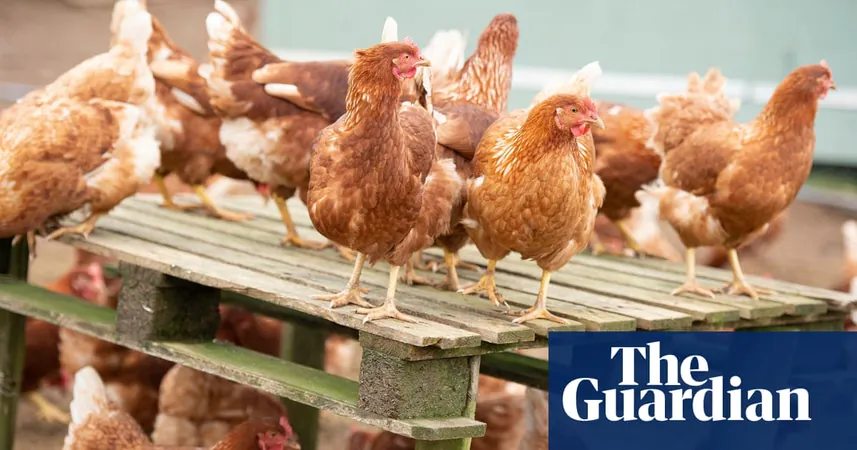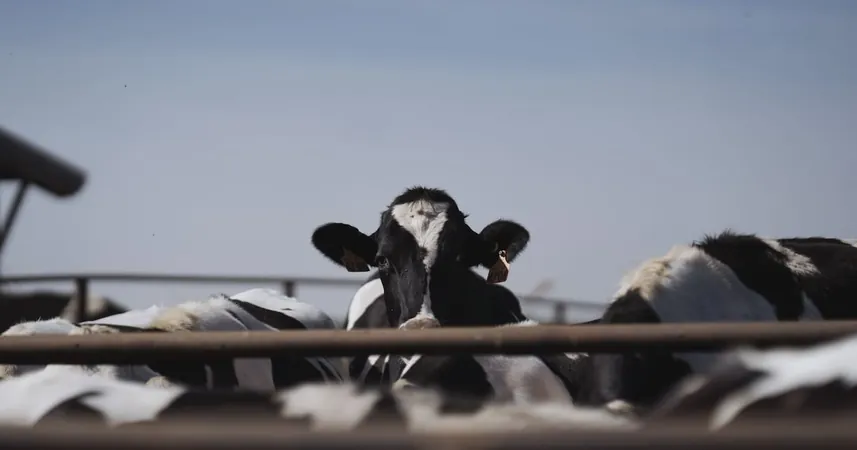
Alarming Bird Flu Mutation Detected in First Severe Human Case in the U.S. - What You Need to Know!
2024-12-27
Author: Emma
Introduction
In a startling development, the U.S. Centers for Disease Control and Prevention (CDC) announced that the first severe case of bird flu detected in a Louisiana resident over the age of 65 has revealed concerning mutations in the virus. These mutations were absent in the samples taken from infected birds on the patient’s property, indicating a potentially dangerous shift in the virus’s behavior.
CDC Analysis
The CDC’s analysis focused on the hemagglutinin (HA) gene, a critical component of the bird flu virus that facilitates its attachment to host cells. The genetic changes observed in this particular case could affect how the virus interacts with potential hosts, raising questions about its evolution and spread.
Low Risk but Serious Concerns
Despite these alarming findings, the CDC reassured the public that the overall risk from this outbreak remains low. The patient, suffering from severe respiratory illness, was infected with the D1.1 genotype of the virus—recently observed in wild birds and poultry across the U.S. This is distinct from the B3.13 genotype previously detected in a range of species, including dairy cows and other poultry, further complicating the epidemiological picture.
Global Context
Interestingly, the mutations noted in this case, while rare, have been documented in severe bird flu cases in other countries. For instance, one mutation similarly appeared in a serious case recorded in British Columbia, Canada. This correlation raises concerns about the potential for more severe strains to emerge as the virus adapts.
Transmission Concerns
CDC officials have not identified any instances of transmission from the Louisiana patient to others, which suggests that the virus's ability to spread between humans remains limited at this point. Nevertheless, ongoing surveillance and research will be vital as health authorities monitor this situation closely.
Stay Vigilant
With winter approaching and migratory bird patterns shifting, it's crucial for both the public and health officials to stay vigilant. Experts warn that as the environment changes, so too could the behavior of the virus. Those who handle birds or work in poultry settings are strongly advised to adhere to safety measures to mitigate risks.
Conclusion
Stay informed and keep an eye on developments regarding the bird flu virus, as its mutations could have significant implications for public health in the months to come.









 Brasil (PT)
Brasil (PT)
 Canada (EN)
Canada (EN)
 Chile (ES)
Chile (ES)
 España (ES)
España (ES)
 France (FR)
France (FR)
 Hong Kong (EN)
Hong Kong (EN)
 Italia (IT)
Italia (IT)
 日本 (JA)
日本 (JA)
 Magyarország (HU)
Magyarország (HU)
 Norge (NO)
Norge (NO)
 Polska (PL)
Polska (PL)
 Schweiz (DE)
Schweiz (DE)
 Singapore (EN)
Singapore (EN)
 Sverige (SV)
Sverige (SV)
 Suomi (FI)
Suomi (FI)
 Türkiye (TR)
Türkiye (TR)